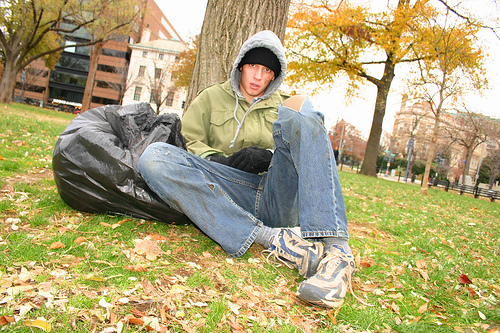
Homeless smokers have a harder time quitting tobacco than do smokers who are struggling financially but have a stable place to live, according to a new study.
The study, funded in part by the American Cancer Society, compared homeless smokers receiving treatment at a shelter-based smoking cessation clinic to people enrolled in a smoking cessation program at a hospital.
One challenge in quitting: because more homeless people smoke, homeless people who are trying to drop the habit are surrounded by smokers. Homeless people trying to quit reported being around 40 smokers every day, while the hospital based group reported being around three to four smokers each day, according to researchers.
“Imagine if you had an alcohol problem and were trying to quit drinking. It would be almost impossible to quit if you were surrounded by 40 people drinking every day. That is the situation homeless folks have to overcome when they try to quit smoking,” said Michael S. Businelle, MD, assistant professor of health promotion and behavioral sciences at the University of Texas School of Public Health Dallas Regional Campus and lead author of the study.
According to Businelle, prior research shows that an estimated 75 percent of homeless people smoke, homeless men die an average of 13 years earlier than men who aren’t homeless, and smoking is a leading cause of death in the homeless population. “Although homeless smokers are just as likely to try to quit smoking as other smokers, they are far less successful at quitting,” says Businelle. “Unfortunately, there has been very little research that has examined the causes and solutions to this disparity. Understanding the hurdles homeless people face when quitting smoking, will allow us to design smoking cessation interventions specifically for them,” he added.
As a result of the study findings, the shelter where the study research was conducted initiated a policy change designating half of the 10,000 square foot shelter courtyard as a smoke-free zone. Businelle plans to publish the results of that decision when a study of the outcomes concludes.
Businelle’s study was published in the American Journal of Public Health, and funded by The University of Texas School of Public Health with support from the American Cancer Society.





